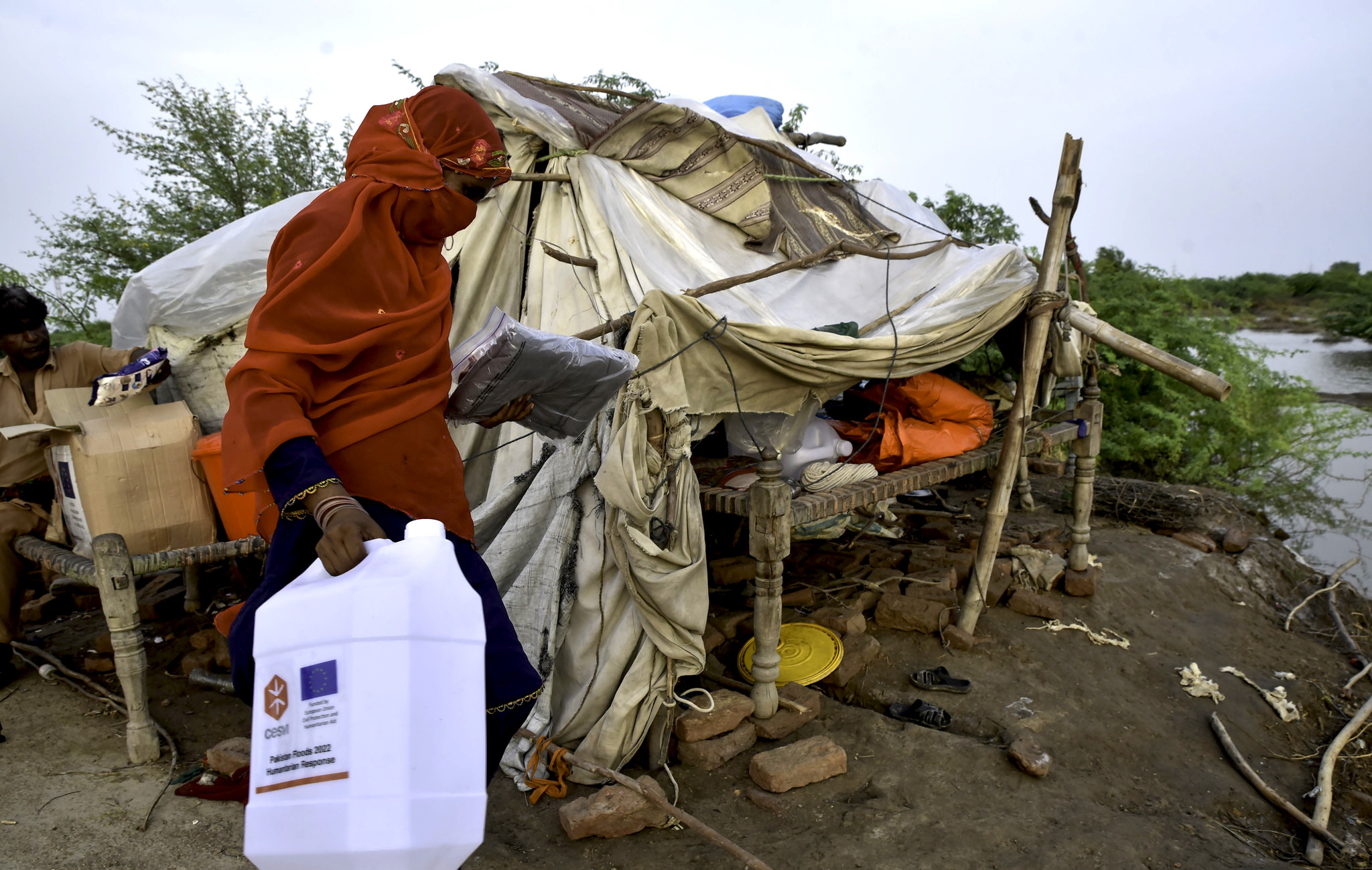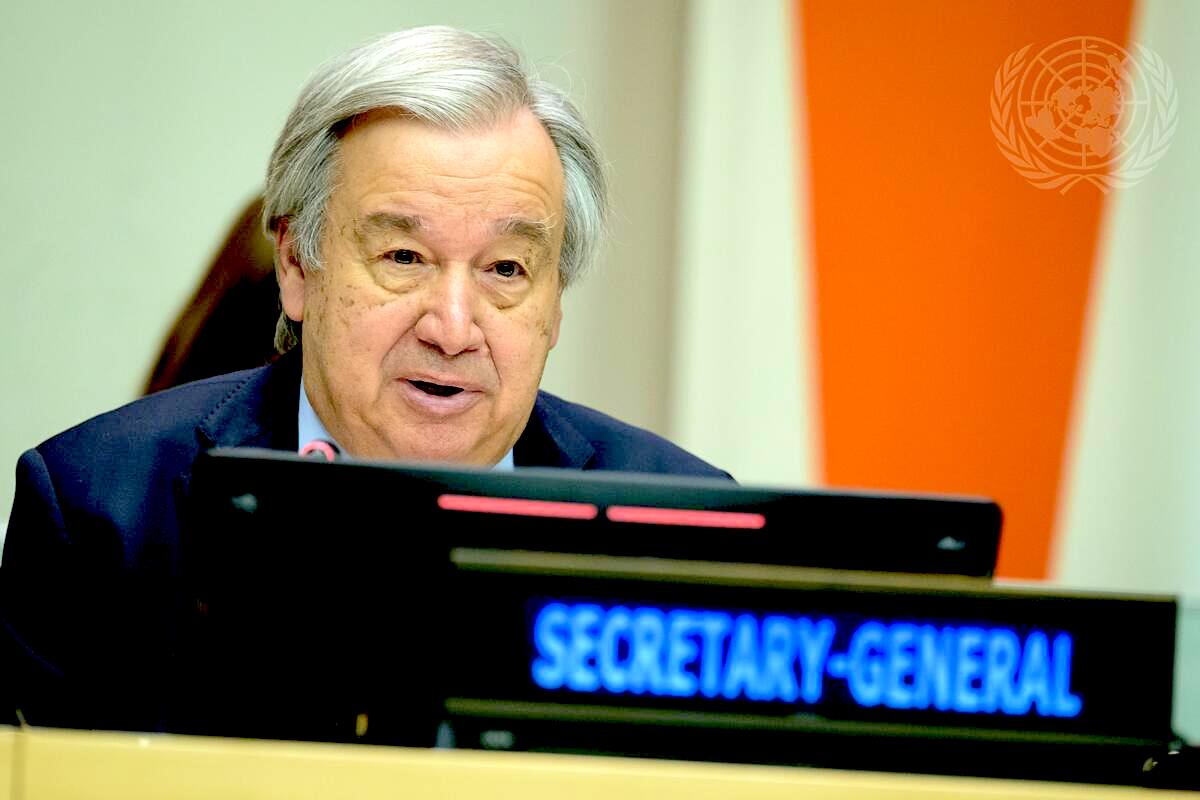In the latest report by five U.N. agencies, the climate emergency, armed conflicts and the Covid-19 pandemic are seen pushing the global goal of eradicating hunger further out of reach.

People in the drought-stricken Somali region of Ethiopia in April. (UNICEF Ethiopia, CC-BY-NC-ND 2.0)
By Jessica Corbett
Common Dreams
The climate emergency, armed conflicts and the Covid-19 pandemic have pushed over 100 million more people into hunger around the world during the past few years, five United Nations agencies revealed Wednesday in an annual report.
The latest “State of Food Security and Nutrition in the World” report estimates that hunger affected between 691 million and 783 million people last year, with a mid-range of 735 million — or 122 million more than 2019, before the public health disaster.
[Related: Rich Countries Skimp on Famine Relief]
“From 2021 to 2022, progress was made towards reducing hunger in Asia and in Latin America, but hunger is still on the rise in Western Asia, the Caribbean, and all subregions of Africa,” states the report from the Food and Agriculture Organization (FAO), International Fund for Agricultural Development (IFAD), United Nations Children’s Fund (UNICEF), World Health Organization (WHO), and World Food Program (WFP).
[Related: How to Eradicate Poverty]
In terms of nutrition, “more than 3.1 billion people in the world — or 42 percent — were unable to afford a healthy diet in 2021,” or “an overall increase of 134 million people compared to 2019,” the publication says. “Worldwide in 2022, an estimated 148.1 million children under 5 years of age (22.3%) were stunted, 45 million (6.8%) were wasted, and 37 million (5.6%) were overweight.”
The document also looks ahead, warning of the projection that “almost 600 million people will be chronically undernourished in 2030,” which “is about 119 million more than in a scenario in which neither the pandemic nor the war in Ukraine had occurred, and around 23 million more than if the war in Ukraine had not happened.”
The second of the 17 sustainable development goals (SDGs) that U.N. member states have set for 2030 is eradicating hunger. Given current conditions as well as expectations for the rest of this decade, meeting that goal “poses a daunting challenge,” the leaders of the five agencies wrote in the report’s foreword.

A woman in Sindh, Pakistan, who was living in a shelter made of sticks and cloths after her home was destroyed by flooding in 2022. (European Union, Flicker CC BY 2.0)
“As past editions of this report have highlighted, the intensification of the major drivers of food insecurity and malnutrition — conflict, climate extremes, economic slowdowns and downturns and growing inequality — often occurring in combination, is challenging our efforts to achieve the SDGs,” the document says.
“There is no question these threats will continue, requiring that we remain steadfast to build resilience against them. However, there are still important megatrends that must be fully understood when devising policies to meet the SDG 2 targets,” the publication continues. “One such megatrend, and the focus of this year’s report, is urbanization.”
The new publication prompted passionate calls for action from U.N. leaders — including Secretary-General António Guterres, who said in a video message that “in a world of plenty, no one should go hungry, and no one should suffer the cruelty of malnutrition. But this report on the state of food security and nutrition paints a stark picture of our reality.”

U.N. Secretary-General António Guterres at the U.N. in May. (UN Photo/Manuel Elías)
“There are rays of hope: Some regions are on track to achieve some 2030 nutrition targets. But overall, we need an intense and immediate global effort to rescue the sustainable development goals,” Guterres declared. “We must build resilience against the crises and shocks that drive food insecurity — from conflict to climate. We must protect gains in child nutrition, including from risks posed by rising obesity. And we must ensure food systems are fit for the future.”
IFAD President Alvaro Lario stressed in a statement that “a world without hunger is possible. What we are missing is the investments and political will to implement solutions at scale. We can eradicate hunger if we make it a global priority.”
“Investments in small-scale farmers and in their adaptation to climate change, access to inputs and technologies, and access to finance to set up small agribusinesses can make a difference. Small-scale producers are part of the solution” Lario said. “Properly supported, they can produce more food, diversify production, and supply both urban and rural markets — feeding rural areas and cities nutritious and locally grown food.”
Jessica Corbett is a staff writer for Common Dreams.
This article is from Common Dreams.
Views expressed in this article and may or may not reflect those of Consortium News.


The fact that we have the capability to feed, clothe and house every human on the planet, but don’t, should be enough to make clear to anyone that we are failing as a species, and that our man-made systems are obsolete, out-dated, what have you…the technology we create is always progressing, yet our attitudes and ideologies do not. This is the Great Schism.
how about the effect of u.s. imperialism?
And how many ‘pushed’ into wealth??? by profiting from these disasters?
As many have observed in the past, we could eradicate global hunger simply by diverting the vast sums of money spent on weapons and armament in the west – and still have change!
Compare that figure to what China has accomplished over the past several years: lifted millions of its citizens out of abject poverty.
With the world on the brink of a world war and starvation increasing, does the UN have a raison d’etre? Does it just stand on the sidelines and issue warnings, as well as collaborate in covering up war crimes? Does it have teeth or is it totally impotent?
Riva, good question. People should take a look at China’s solution. When Xi Jinping took office, there was extreme hunger and poverty across the country. He created a system, using 800,000 young people to form cadres to spread into extreme hunger areas across China. Their stint was two years. In these areas, the situations were studied, and solutions found and carried out, creating communities that grew food, livestock and unity to include all members of their communities, inclusive cooperatives, focusing on development. Guess what, extreme poverty is eliminated in China. God forbid the US conceive anything comparable, Americans thinking only individually; i.e., selfishly. God forbid we think communally.
Thinking communally doesn’t jive with capitalism.
I’ve said before Riva, the UN is about as much use as an ashtray on a motorbike. But that goes for most of the “bodies” created to represent the planet. They are impotent in the face of capitalism and greed.
Thanks Valerie. Until it is acknowledged that the UN is an impotent “ashtray on a motorcycle,” it gives a veneer of legitimacy to the pathology of capitalism and greed.
And we could have done so well. Shame on us.
The UN too much with America’s boot at its throat.